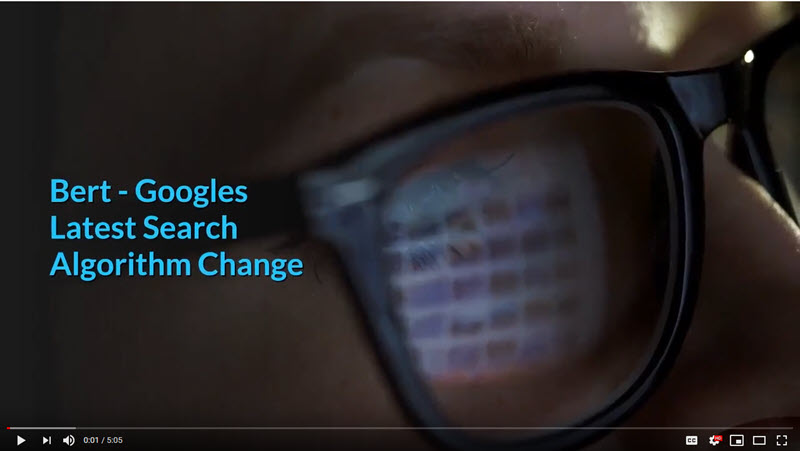Google is rolling out what is said to be its “single biggest positive” algorithm change, one that could affect 10 percent of all search results
This presentation contains images that were used under a Creative Commons License. Click here to see the full list of images and attributions: https://link.attribute.to/cc/477378
If your business depends on Organic traffic from Google then you need to make sure you take this latest change seriously.
This major change is likely to affect the results for 1 in 10 search queries
This change is based on the fact that in the past Google looked at the search term used like a “bag of words.” It was clever enough to pick out what it considered to be the important words, e.g. if you entered “who is a fantastic public speaker,” clearly “ public ” and “speaker” are more important than “is” and “a.”
That was fine, but it meant that Google ‘missed the context’ and could therefore miss the searchers true intent, i.e what they were really after.
Here’s an example Google used in their announcement: Say you enter the search sentence “can you get medicine for someone pharmacy?”
In the past, the algorithm picked out “medicine” and “pharmacy” and returned local results under the assumption you are looking for a nearby chemist.
Google’s new rule set will however notice “for someone” and deduces the searcher was looking for information on whether a person is allowed to pick up someone else’s medicine for them.
This change could come up with some very different results.
The new rule set is based on a ‘beastie’ called BERT, or “Bidirectional Encoder Representations from Transformers.” (Yes: BERT is a lot easier to remember.)
Basically BERT is a tool that uses the full power of natural language processing (NLP) by using Artificial Intelligence together with a massive data set to deliver better contextual results.
And if you want it put in even more simpler terms, BERT allows Google to better understand what the searcher is actually looking for.
Google shared another one too: “Parking on a hill with no curb.” The previous algorithm looked at this bag of words and got rid of the very important ‘stop’ word “no,” which meant that the top result referenced how to park on a hill with curbs. This is not what the searcher wanted at all…
On the other hand the new algorithm understands that the “no” mattered and thus provided a top result which showed how to park uphill or downhill with no curb.
Not all search queries will be affected by this algorithm change and at the moment at least, all SEO professionals are a bit in the dark about how it works and what it will affect.
The upshot of all this is that if your site suddenly ranks lower than it was for certain search terms, BERT might just be to blame. However, as with all changes in rankings, there could be other things at work here, so if it happens some research would be needed….
According to Pandu Nayak, Google VP of Research, “This is the single biggest … most positive change we’ve had in the last five years and perhaps one of the biggest since the beginning.”
What Does This Mean To You
Basically, business owners now have to keep an eye out for any changes to their search rankings and then will have to spend time analyzing what is known as ‘keyword context’, especially if you target longer-tail keyword phrases.
Even if your search traffic remains stable, your conversion rate could dip. If so, that’s more than likely a sign at least portion of the traffic you are getting isn’t interested in what you provide, when in the past it was….
However, since some are saying that it is likely to be impossible to truly optimize for BERT, you really have to ensure that you create content for people, not search engines and that you answer the questions that they ask and give them the information that they need, rather than what you just want to push…
Google’s aim is to provide the best possible list of results for any given search phrase. BERT is just another step here in Google’s effort to understand user intent, that is, “what people want when they search”.
So, understand what your potential customers want and then deliver it to them in precise manner. Remember the better you match their needs, the more likely BERT is to rank your pages higher in the search results.
Gaming Google never works for long, but providing genuine value does.
